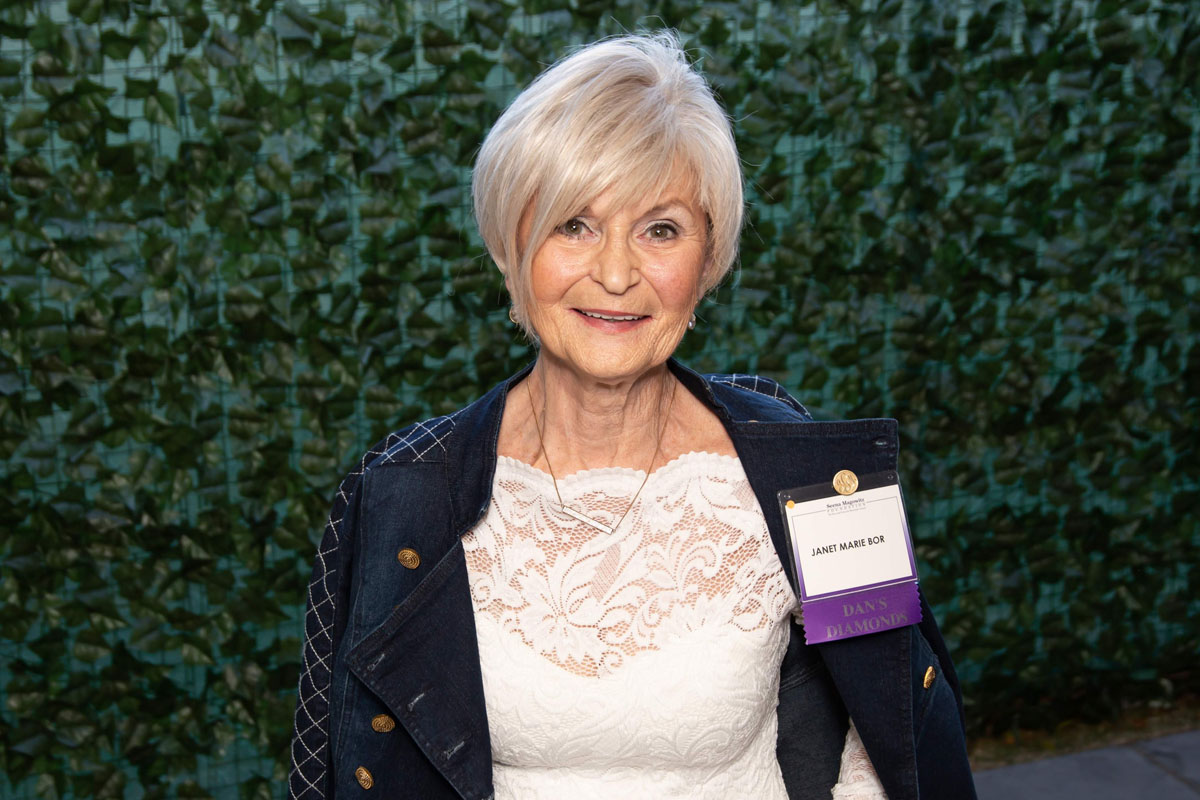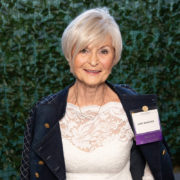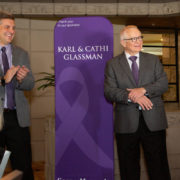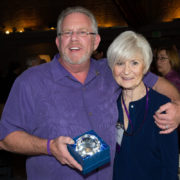
JANET BOR: PANCREATIC CANCER SURVIVOR
Written By Debra Gelbart
October 2019
Diagnosed: July 2017
Status: Response Has Been Remarkable
Janet Benefited From “Neoadjuvant” Therapy
Patients living with cancer—especially those with pancreatic cancer—now have more treatment options than ever before. “The most significant change in treatment has been the personalization of therapy,” said Steven Sckolnik, MD, a radiation oncologist with HonorHealth. “There is no longer a ‘one-size-fits-all’ approach. By using new treatment techniques, we can individualize cancer care and maximize response while minimizing side effects.”
That certainly applies to Janet Bor who says her the first indication something was seriously wrong in June 2017 was her skin tone. “I was at my mom’s group home,” the Scottsdale resident said, “and the owner of the home told me I looked yellow,” she said. “And not just jaundiced, but bright lemon.”
The cause was a build-up of bilirubin, a brownish pigment that’s part of bile secreted by the common bile duct in the liver. In July 2017, a surgeon confirmed a diagnosis of Stage 2 cancer confined to her pancreas, known as localized pancreatic cancer or pancreatic ductal adenocarcinoma (PDAC).
Connecting with HonorHealth Research Institute
Janet lives near the HonorHealth Research Institute (HHRI) in north Scottsdale, Arizona so she asked her doctor to help her connect with experts there. On a Wednesday in July 2017, Janet had an appointment to see Erkut Borazanci, M.D., an oncologist who told her about a new, investigative regimen of drugs that when administered together are known as “neoadjuvant” therapy (meaning treatment before a surgery).
Dr. Borazanci wanted to enroll Janet in a clinical trial as soon as possible. As soon as her bilirubin levels had normalized in September 2017, Janet began the regimen of four drugs administered intravenously: Abraxane, gemcitabine, cisplatin and paricalcitol (an analog of activated Vitamin D). She continued receiving that regimen through December of 2017.
Read The Clinical Trial at NIH
“The most significant change in treatment has been the personalization of therapy,” said Steven Sckolnik, MD, a radiation oncologist with HonorHealth. “There is no longer a ‘one-size-fits-all’ approach. By using new treatment techniques, we can individualize cancer care and maximize response while minimizing side effects.”
In a recently published review of the newer treatment approaches for localized pancreatic cancer, Dr. Borazanci and his colleagues, Albert Amini, MD, and Dr. Sckolnik, highlight several studies showing improved survival with neoadjuvant therapy in individuals with localized pancreatic cancer. Historically, most individuals with localized pancreatic cancer are offered immediate surgery of their pancreatic tumor. However, survival on average with the upfront surgery approach is only around two years.
“This review focuses on the shifting paradigm in how we look at localized pancreatic cancer,” Dr. Borazanci said. “By incorporating systemic, multi-agent therapy utilizing newer combinations of chemotherapy, we may be able to offer individuals a much better chance to live longer.”
Read Janet’s Article at HonorHealth Research Institute
Impressive Response
Janet’s response to the chemotherapy regimen, followed by a surgical procedure to remove the tumor and the pancreas, has been remarkable. She said when she first consulted with Dr. Borazanci, her tumor marker—an indicator of how advanced the cancer is—was 100. “My last blood test showed it was 19,” she said. The normal range for the tumor marker for pancreatic cancer, called CA 19-9, in a healthy person is 0-37.
“The advantages of neoadjuvant therapy in resectable (responsive to surgery) pancreas cancer are becoming more and more prominent as chemotherapy options continue to improve,” Dr. Amini said.
When Janet was asked how she’s feeling now, she replied, “I cannot talk about how I feel without talking about the people at the HonorHealth Research Institute. From the minute you walk in the door, every staff encounter is a model for what the patient experience should be about.” She added that she’s “eternally grateful for every day I wake up. And I have great quality of life.”











Continue to thrive dear one .. You give me lots for encouragement and hope
Love & hugs